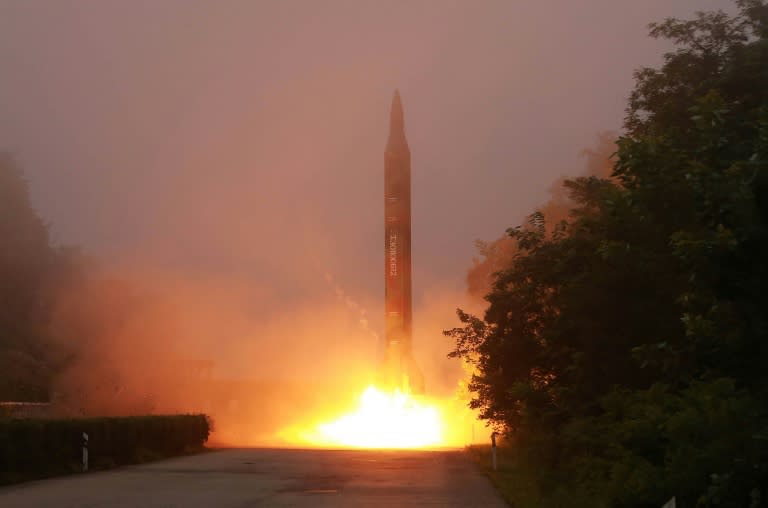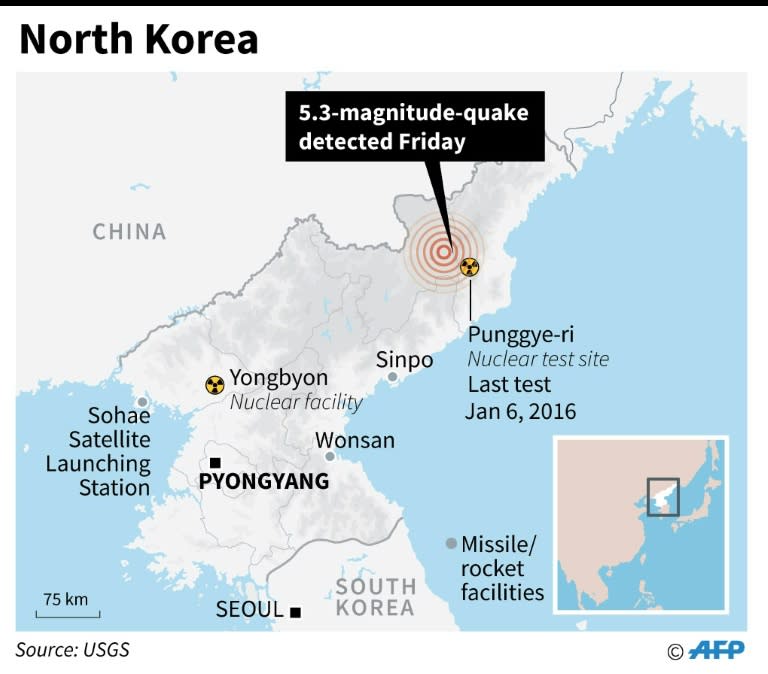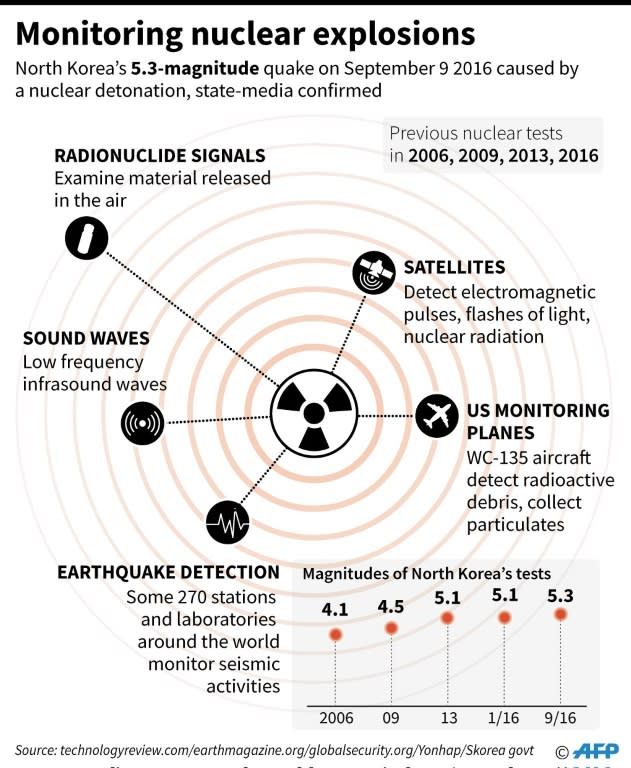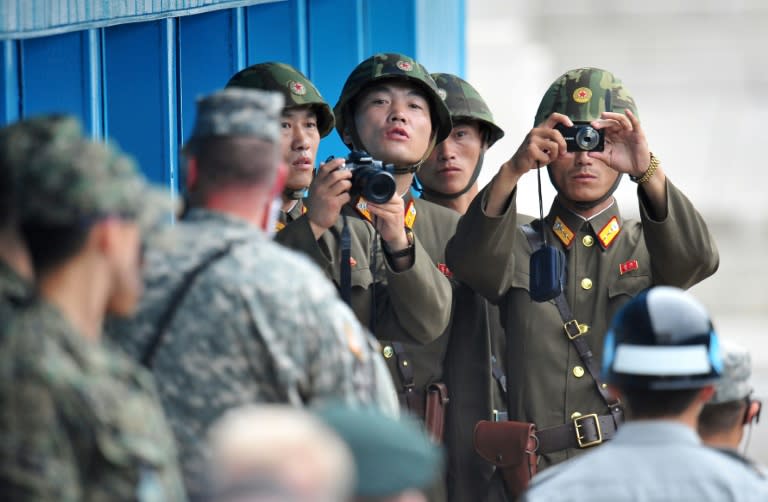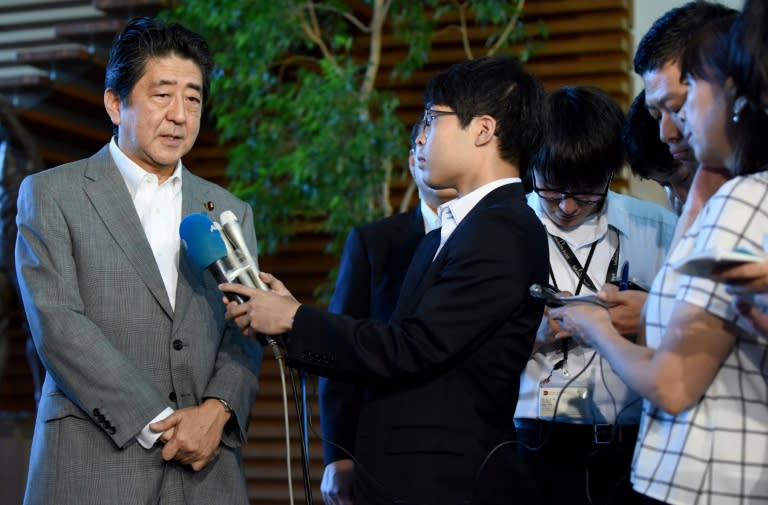Calls mount for new UN sanctions against North Korea
The UN Security Council met behind closed doors Friday for urgent talks on North Korea's fifth nuclear test as calls mounted for new sanctions against Pyongyang. South Korea, the United States, Japan, Russia and China all condemned the blast at the Punggye-ri nuclear site, the North's most powerful yet at 10 kilotons. US President Barack Obama called the test "a grave threat to regional security and to international peace and stability" and vowed to push for new international sanctions. UN Secretary-General Ban Ki-moon urged the council to take "appropriate action" after what he called a "brazen breach" of UN resolutions. "The patience on our side and that of the international community has already reached its limit," South Korean President Park Geun-Hye said, slamming the North's leader Kim Jong-Un for his "maniacal recklessness." Japan condemned the test as "absolutely unacceptable" and Russia expressed "extreme concern." France urged the council to begin work on a resolution that would impose a new raft of sanctions -- the sixth set of UN punitive measures to hit Pyongyang since it first tested a nuclear device in 2006. "We believe new sanctions are indispensable," French Ambassador Francois Delattre told reporters as he headed into the emergency meeting. The council met at the request of Japan, South Korea and the United States to try to agree on a response, but it remained unclear if China, Pyongyang's ally, would support tougher measures. US Ambassador Samantha Power appealed for council unity, warning in a clear reference to China that divisions "only embolden the DPRK to further provocations." After Pyongyang carried out its fourth nuclear test, the council in March adopted the toughest sanctions resolution to date targeting North Korea's trade in minerals and tightening banking restrictions. North Korea has carried out 21 ballistic missile launches since that resolution, Power said, describing those tests and Pyongyang's second nuclear detonation this year as "more than brazen defiance." - Announcement on North Korean TV - Pyongyang's state media said the nuclear test had realized the country's goal of being able to fit a miniaturized warhead on a rocket. "Our nuclear scientists staged a nuclear explosion test on a newly developed nuclear warhead at the country's northern nuclear test site," a North Korean TV presenter said. The first indications of an underground explosion came when seismic monitors detected a 5.3-magnitude "artificial earthquake" near the Punggye-ri nuclear site. "The 10-kiloton blast was nearly twice the (power of the) fourth nuclear test and slightly less than the Hiroshima bombing, which was measured about 15 kilotons," said Kim Nam-Wook of the South's meteorological agency. But attention soon shifted from the blast's power to Pyongyang's claim that it was a miniaturized warhead. If Pyongyang can make a nuclear device small enough to fit on a rocket -- and bolster the range and accuracy of its missiles -- it might achieve its oft-stated aim of hitting US targets. But its past claims to have achieved that have been discounted. North Koreans gathered around public screens to watch the official announcement of the test -- which came on the 68th anniversary of the country's founding. The test came as American and South Korean forces staged a re-enactment of the Incheon landing, 66 years after the start of Operation Chromite, the battle that turned the tide in the Korean War. Outside experts said authenticating North Korea's claim to have mastered miniaturization would be difficult using seismic data alone. "We would need to see it tested on a missile, like China did in the 1960s," said Melissa Hanham, a North Korea expert at the Middlebury Institute of International Studies. "Nobody wants to see that. There is no way they could do that test in a safe way, and it could easily start a war." - Another challenge for China - North Korea's nuclear program has accompanied a series of ballistic missile launches, the latest of which took place on Monday as world powers gathered for a G20 meeting in China. This week's events pose yet another challenge for China, which has been under pressure to rein in its increasingly aggressive neighbor. Beijing said Friday it "firmly opposes" the test, but it has limited room to maneuver. Its priority is to avoid the regime's collapse, which would create a crisis on its border and shift the balance of power on the Korean peninsula toward the United States. US Defense Secretary Ashton Carter called for further pressure on North Korea, but said China bore "responsibility" for tackling the problem. "China shares important responsibility for this development and has an important responsibility to reverse it," he said. "It's important that it use its location, its history and its influence to further the denuclearization of the Korean peninsula and not the direction things have been going."

